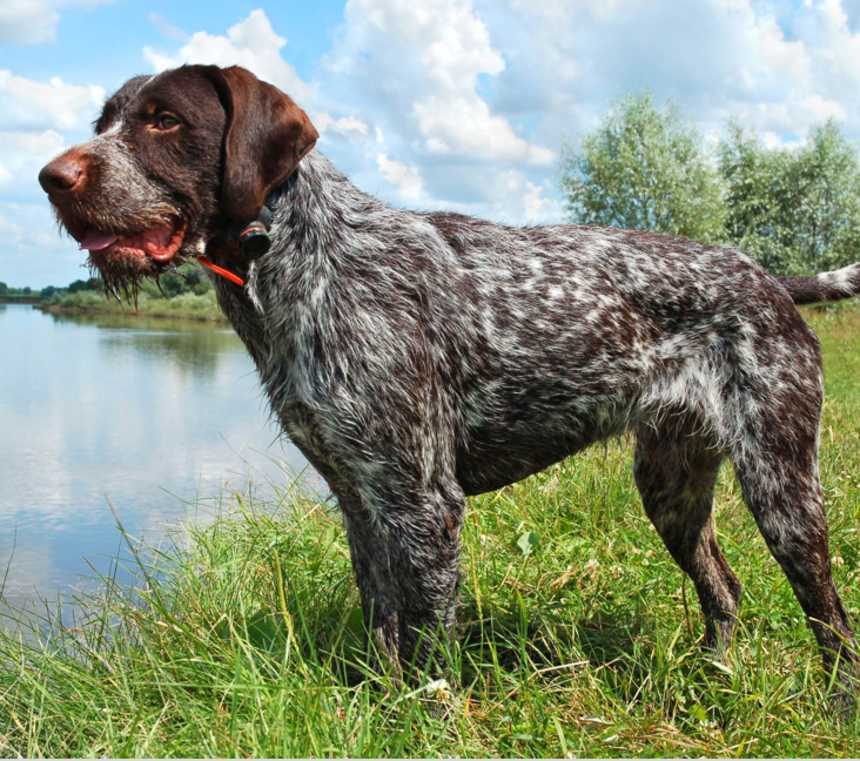Are German Wirehaired Pointers healthy?

The German Wirehaired Pointer is quite a sturdy dog with a relatively long average lifespan. However, they are prone to some common health issues, including:
- Hip and/or elbow dysplasia: Hip and elbow dysplasia are two of the most common skeletal diseases seen in dogs. They are similar diseases in which either the hip or elbow joint has grown abnormally or is misshapen. The abnormal shape prevents the joints and sockets from adequately meeting one another, resulting in rubbing and grinding instead of sliding smoothly. Though the main complication with hip dysplasia is joint instability, the abnormalities present in elbow dysplasia often result in pieces of bone and/or cartilage breaking loose and irritating the joint tissues. Over time, the rubbing from dysplasia can cause a variety of issues, such as pain, lameness, and secondary osteoarthritis. Surgery can fix the joint if diagnosed before the onset of arthritis. If you are rescuing a German Wirehaired Pointer, have them checked out by a vet to see if they are prone to getting dysplasia.
- Eye issues: Entropion, a genetic defect where one or both eyelids are inverted or roll inward and rub on the surface of the eye; and progressive retinal atrophy (PRA), a progressive degenerative disease affecting the retina that eventually leads to blindness.
- Others: German Wirehaired Pointers are also prone to heart disease, seizures, and gastric dilatation-volvulus, a sudden, painful, and life-threatening swelling and twisting of the abdomen. Due to their floppy ears, they can be prone to ear infections if not properly cleaned and dried. Your vet may recommend hip, eye, and imaging tests.